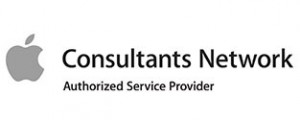Microsoft is your ultimate cheerleader – which might be a pun on their product, Microsoft Teams! But really, the app is named for the collaborative environment that caters to teamwork.
Microsoft Teams is a collaborative workspace included in subscription-based Office 365 and a hub for workgroups with teams of staff. Microsoft Teams offers a secure environment and guarantees Team members access to the information a Team needs to work together. Connectivity and communication are clean and organized and offer Teams the chance to chat, call, meet, and store shared files within channels.
Why We Know You’ll Love Microsoft Teams
Microsoft Teams is customizable for each Team and integrates with other productivity apps, including the full Office suite. Switching between Teams is easy, allowing for multiple accounts under one user should there be a need. Teams can be seen as Microsoft’s new iteration of Skype for Business – but with improvements!
Mobile calling and video conferencing are built-in offerings for Microsoft Teams, as are private and group chat capabilities. Chat messages are threaded, a popular option among collaborative platform users. Microsoft Teams also supports integration with email, and apps like SharePoint, Power BI, OneNote, and more. Users can schedule meetings and initiate notifications from within Teams. Users can search Microsoft Teams for people, files, and chat messages, and opt-in to notifications using connectors.
Cloud service connectivity is supported for a highly-customizable user experience, and users can increase productivity even further by automating tasks by adding bots to your Team. Tailor channels to your Team’s specific needs no matter what the nature of the Team is.
How different divisions use Microsoft Teams:
Where You’ll Use Microsoft Teams
The development team at Microsoft knows that connectivity doesn’t rely on geographical location, and that modern teams can be distributed or global. Connecting via desktop computer, laptop computer, tablet, smartphone, or mobile device is easy as Microsoft Teams was designed with an interface for all options.
Who Will Use Microsoft Teams
Depending on if you choose private or public is what will decide if your Team is open to new members by invitation only, or anyone can join. Anyone can join Teams that are available to be discovered in the Suggested Teams.
Things to remember:
About Teams:
If you already have a Group in Office 365, activate Microsoft Teams on your existing Group rather than creating a new Group, to avoid duplicates. The Group will have a shared Outlook inbox and calendar, SharePoint site and document library. Redundant Groups lend to confusion over which is the official or “right” Group, and this goes against the purpose of Microsoft Teams.
About Channels:
Channels organize Team conversations by topic. All Teams have a “General” Channel by default, to help a Team initiate communication within the Channel.
A neat trick allows users to send an email from Outlook or Gmail or another integrated email service into the Channel, and the email will be forwarded in for all members of the Team to see within the Channel. This feature is particularly helpful with Teams that generate long email chains involving many recipients. Emailing communications like these into a Channel also helps centralize the communication and maintain continuity of the conversation, supporting the purpose of Microsoft Teams.
Team members can schedule meetings within a Channel, or members can opt to “Meet Now” in a cool feature that allows any Team members available to hold an impromptu meeting over the phone or via video.
About Tabs:
Tabs are helpful in that tabs support a multi-faceted approach to sharing and communicating. The nature of Microsoft Teams is a collaborative environment and allowing Team members to utilize Channels to share more than just basic messages facilitates open dialogue.
About Connectors and Bots:
Connectors are how Microsoft Teams pushes content into the Channel from connected applications and feeds, upon initiation by the user.
Microsoft Teams offers tremendous flexibility and an amazingly intuitive interface for users. Teams is a wonderful collaborative workspace and communication hub. Like with any new technology or platform, adoption is dependent entirely on the collective using the application or service for widespread and continued use. It’s also compliant with regulations from HIPAA to ISO standards.
The magic of Microsoft Teams is in its flexibility, its transparency, and its simplicity. Try it today using these tips, and enjoy a successful Teams launch!



